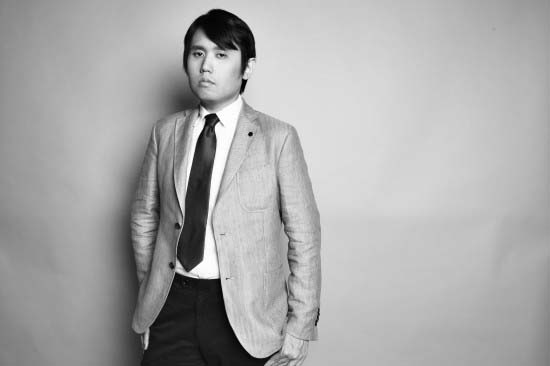Philbert Dy is Manila lifestyle website Clickthecity’s resident film critic, and one of the country’s vocal voices when it comes to cinema. He’s judged competitions, curated festivals, and even engaged in online arguments with celebrities who think he should have given their films a higher rating.
“A film critic writes about movies. He or she offers thoughts and insight on films that he or she has seen,” Dy opines. It’s a calling he wouldn’t trade for the world.
Dy got his job simply by asking for it. During a lunch meeting with one of the writers at Clickthecity, he brought up how Clickthecity didn’t have movie reviews, and he offered to try that out. Dy had been blogging for a while, and the writer was already a fan. So an offer was made.
Though Dy is part Chinese, he says that he doesn’t really feel particularly Chinese.
“I grew up with very superficial connections to my Chinese side. I did study at Xavier, but I don’t think I got much of a Chinese education from there. I could recognize that everyone was Chinese, but it wasn’t really all that big a deal,” he explains.
Being a film critic is a big step from the professions of a lot of other Tsinoys; it’s one of those professions that boggle the mind and defy explanation, at least for many parents.
“I know that my parents would rather I be a lawyer or something, but they’ve grown to understand my writing as a viable profession,” Dy says.
“I don’t think I express a lot of specific Chinese-Filipino ideas in my writing, so it wouldn’t have been an issue to readers, I think, unless they were completely insane,” he adds.
Dy’s job sounds easy enough on paper: go to the cinema, watch a movie, and write about 600 words that explain what he thought about the movie.
But it obviously involves more than that. There’s a lot of thinking, a lot of dissecting of what makes a film work and what doesn’t, plus the hard task of articulating, through a limited number of words, why this is so.
And then there’s dealing with everyone else’s opinions after the piece is published.
Dy has channeled the opinion-sharing into discourse, using social media to broaden the public’s appreciation of cinema.
“I think of Twitter as being part of my job now. I try to engage people in discourse, try to get them to think about the films they watch beyond the parameters of who’s starring in it,” he says.

His expertise has made him one of the country’s experts. He is often consulted on various film-related projects. More recently, he was appointed one of the nominations advisers for the Asian Film Awards.
He also gets to cover local and international film festivals and, more recently, curate them.
“Besides the local ones, I’ve been to Rotterdam and Tokyo. I curate a showcase of Filipino films at the Yerba Buena Center for the Arts in San Francisco,” he says. “Attending a festival is fun, mostly for the great variety of films that you have access to, and the sheer number of filmmakers and film professionals you can just talk to about cinema.”
For Dy, the biggest challenge is overcoming fatigue. He sees a lot of movies, but to get the best out of a festival experience, he needs to attend other events besides screenings, like Q&As and parties and the like.
“Curating is a different challenge. The toughest part is just trying to chase filmmakers down and getting them to commit, especially when we’re up against much bigger festivals,” Dy shares.
He says, “Running the thing is a joy. One of the best things about getting to show films is sharing something with people that they’ve never seen before. Getting to explain why a film was chosen, and later talking to a diverse group of people about what they got out of the film, is a remarkable thing.”
Having seen what the film scene is like overseas, Dy is optimistic about the way things are going locally.
“We’re doing fine. It’s been growing steadily for the last decade now, and we’re at a point where the diversity and the quality of the output is mind-boggling,” he says. “The rise of regional cinema continues to be exciting. All we really need now are new alternative arthouse venues to give many of these films a home and a viable market.”
What he’s personally building towards, as a responsible film critic, is a cinema-going public that is able to articulate their opinions on what they just saw. Dy says he doesn’t care about the industry. He feels his responsibility is to the audience, to the people watching the films.
“What I wish for is a higher level of discourse, a greater willingness to really talk about films. And I do think my work is at least telling people that it’s okay to be honest, that it’s okay to have feelings about the picture.”
He also wishes that people who don’t work in film would stop thinking about “the industry” and concentrate on whether they like a film or not. To Dy, the enjoyment (or potential enjoyment) of a film should be the main reason for watching it.
He does not believe that a critic has a lot of influence to affect the industry.
“I think audiences in general think too much about the industry as a whole, swearing allegiances or making pleas to support it,” he explains.
“But I think audiences should only really care about what they like and what they don’t like. Being so invested in an industry they have no tangible stake in is strange,” he says.
He wishes that audiences gave different kinds of films a chance, just to see whether they’d like it or not. A gem that he thinks is underrated, of which there are many, is Keith Deligero’s “Iskalawags.”
He finds the film brilliant and melancholy. He laments that not enough people have seen it.
Dy’s quest to open his readers’ eyes to the nuances of film appreciation, whether it be a Hollywood blockbuster or otherwise, is still what he enjoys most about his work. The best thing for him is discovering a good movie and getting to tell people about it.
Film appreciation isn’t hard.
“Just ask yourself why you liked or didn’t like a film you watched. Really ask the question. Give any answer, but try to understand what it is in you specifically that’s leading to this reaction,” he says.
“Film appreciation is inherently personal. There is no such thing as objective criticism. Embrace it, and you’ll understand what it is to truly love a film,” he adds. — First published in Tulay Fortnightly, Chinese-Filipino Digest 29, no. 12 (November 15-December 5, 2016): 16, 15.
